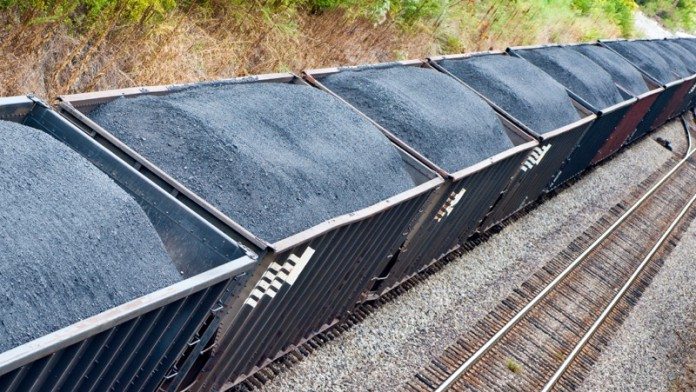
ONE way of playing the global geopolitical distress is to exploit coal, the reputation of which has been slightly rehabilitated of late.
Commenting at the Joburg Indaba, Caroline Donally, the managing partner for Canadian resources investment institution Sprott Resource Streaming & Royalty, urged South Africans to “just mine the stuff”, referring to coal.
“The developed world can deal with green. It has lots more money, lots more people and lots more ways of dealing with it. There are base issues that need to be solved here. The coal is there. Mine it and use it,” she said.
That is a sample of the way the investing world has slowly changed its attitude to coal, partly influenced by events in 2022, when Russia responded to Europe’s sanctioning of its invasion of Ukraine by threatening to cut gas supplies.
More recently, it’s oil supplies that have been in the headlines.
If Israel does eventually bomb Iran’s refineries, in the event of a further escalation of tit-for-tat missile attacks, it stands to trigger another rally in the energy cluster. Sasol is South Africa’s go-to energy play, but for leverage to a rising coal price, Thungela Resources is among the best positioned to benefit.
At spot thermal coal prices, Thungela’s headline share earnings this year could increase 29% against Nedbank Securities’ base case of R23, says the bank’s mining analyst, Arnold van Graan. “We believe such a scenario is probable,” he says, adding that even without geopolitical shocks the coal market is moving into a seasonally stronger period — the northern hemisphere winter.
“When energy prices run, so do our earnings,” says Thungela CEO July Ndlovu in an interview. “At the moment, geopolitics is playing an oversized role in the direction of prices, so don’t take [notice of any prices older] than a week at the moment,” he says.
He adds that the performance of Transnet Freight Rail is providing grounds for a little more optimism.
The tempo, or average run rate, of the rail coal line from Mpumalanga to Richards Bay for the first six months was the equivalent of 5.8 million tons (Mt) in sales. Judging from the past few months, however, that has increased to 6.2Mt for the second half. “Let’s see where [Transnet] is at the end of this year. But it’s encouraging that since the shutdown [for maintenance] the system has been stabilising,” says Ndlovu.
Thanks to the continued repair of the line’s signalling system — so chronically damaged up to now that trains have often collided — Transnet could achieve total coal deliveries to Richards Bay of 55Mt in 2024. Deliveries last year slid to a new 31-year low of 47.21Mt, compared with 50.35Mt in 2022.
Thungela has guided that it foresees production of 11.5Mt-12.5Mt for this year. While that won’t increase this year, regardless of rail route capacity improvements, there may be a reduction in stock levels at its mines, which implies an unlock in capital build. Interestingly, Ndlovu won’t provide specifics. “Stock levels remain stable,” says Ndlovu.
M&A still on radar
One other aspect of Thungela’s investment case is its potential for merger & acquisition (M&A) activity. Coal is still a pariah for some investors, pushing owners to either underinvest in mines or sell them.
Thungela is on the lookout for another turn in either the thermal or the metallurgical coal market, having bought the Ensham thermal coal mine in Australia for A$335m in 2022. A study, due for completion this year, will map out potential production increases — possibly a doubling.
In this regard there is a direct contrast with Exxaro, Thungela’s main JSE rival. Led by Nombasa Tsengwa, Exxaro has about R12bn in cash, set aside for a commodity diversifying deal.
We prefer to stick to our knitting. We want to play where we have a right to win. We understand coal and bulks, and we don’t want to play where we don’t understand – July Ndlovu
Tsengwa this month declared an interest in buying South African manganese assets, having unsuccessfully flirted with copper in Sub-Saharan Africa.
Analysts have previously expressed reservations about Exxaro’s deal risk. “We believe Exxaro’s M&A risk is overdone, with the current share price seemingly placing zero value on the company’s net cash position of R12bn,” says Van Graan.
While Tsengwa’s comments about manganese suggest another special dividend from Exxaro is remote, the firm’s core business is solid, says Van Graan.
Asked about commodity diversification, Ndlovu says: “We prefer to stick to our knitting. We want to play where we have a right to win. We understand coal and bulks, and we don’t want to play where we don’t understand.”
What’s not on Ndlovu’s radar, however, is Anglo American’s metallurgical coal mines in Australia. “Too big for us,” says Ndlovu, who was an Anglo executive when Thungela’s assets were part of Anglo Coal, before its 2019 demerger. “Unless of course Anglo wants to give them away for free.”
Far from it. In terms of its balance sheet recapitalisation plans, Anglo needs to generate a lot of cash. A decision on its metallurgical coal mine sale could come as early as December, says CEO Duncan Wanblad.
A version of this article first appeared in the Financial Mail.











